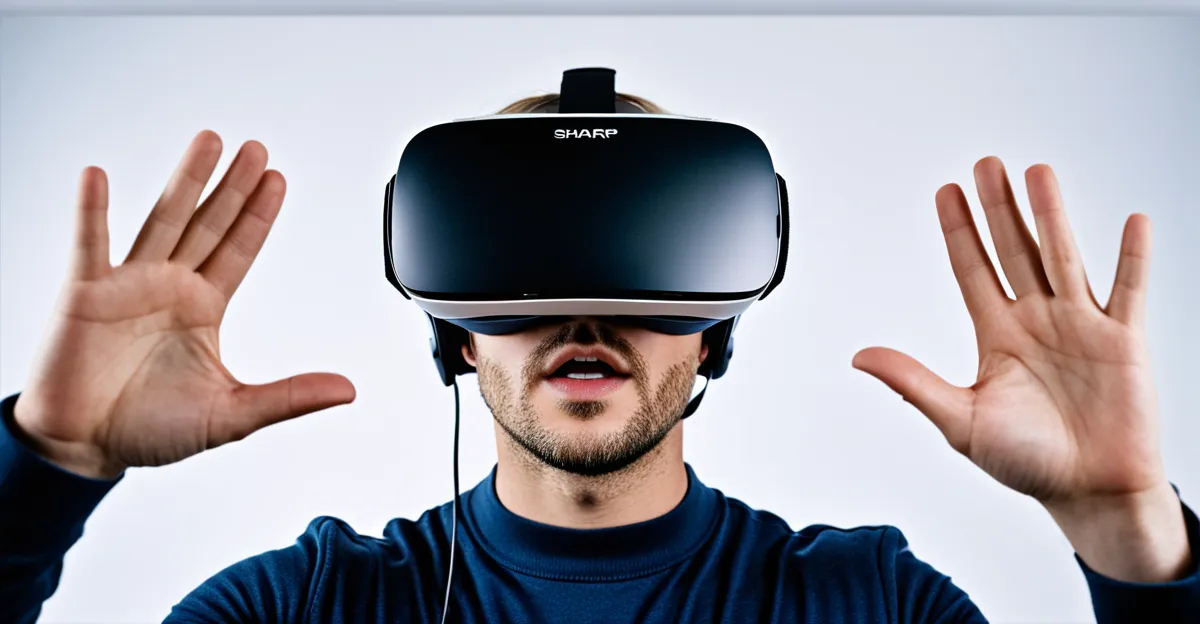How virtual reality is incorporated into marketing strategies in the UK
Virtual reality marketing UK has become a pivotal tool for brands seeking immersive customer engagement. Leading UK companies integrate VR integration marketing UK techniques to create memorable, interactive experiences. These experiences often range from virtual product demonstrations to fully immersive brand storytelling, allowing consumers to experience products or services in a three-dimensional environment before making purchasing decisions.
One common use of virtual reality marketing UK involves 360-degree virtual tours and simulations. For example, retail brands employ VR to let customers explore stores virtually, while real estate marketers use VR integration marketing UK to showcase properties remotely. Such immersive approaches enhance customer understanding and emotional connection to the brand.
Additional reading : What Are the Key Strategies to Promote Cloud Computing in the UK Market?
Moreover, VR integration marketing UK aligns seamlessly with existing digital marketing strategies. By complementing social media campaigns, experiential marketing, and data analytics, VR experiences help amplify brand reach and personalization efforts. This synergy enables marketers to gather valuable insights on consumer behavior during VR interactions, further refining targeted advertising and content creation.
In essence, virtual reality marketing UK boosts engagement, providing both brands and consumers with innovative ways to connect beyond traditional channels.
Also to read : How Can Businesses Leverage UK Computing Trends for Marketing Innovation?
Notable UK virtual reality marketing campaigns and brands
Virtual reality (VR) marketing has seen remarkable adoption by British brands eager to engage consumers through immersive experiences. One standout example is a UK VR marketing case study where a heritage automotive brand launched a VR test-drive campaign. The campaign objective was to provide potential buyers with a realistic vehicle experience without visiting dealerships. By integrating advanced motion tracking and 360-degree video, the creative execution turned a conventional sales tactic into an engaging sensory journey.
Another influential British VR brands campaign involved a luxury retailer employing VR to showcase craftsmanship in real time, bridging the gap between digital and physical product appreciation. Collaborating with leading technology partners ensured seamless interaction and high-fidelity visuals, crucial to maintaining brand prestige.
Analysis of these UK VR marketing case studies reveals key lessons: immersive technology must align closely with brand values and campaign goals to resonate effectively. Overly complex VR applications can dilute the message, while straightforward, experiential implementations often perform better.
In sum, these campaigns underscore the importance of well-planned VR integration, thoughtful creative execution, and partnerships with expert VR developers in producing impactful British VR brands campaigns.
Impact of virtual reality on consumer engagement and marketing ROI
Virtual reality (VR) has significantly transformed marketing strategies across the UK, delivering substantial improvements in both consumer engagement and marketing ROI. Studies focusing on the VR marketing impact UK reveal that brands leveraging VR experiences can expect heightened attention spans and increased emotional connections with their audiences. This immersive approach allows consumers to interact directly with products or services, fostering stronger brand loyalty.
Statistical evaluations support these claims, showing that VR campaigns in the UK consistently yield impressive returns. According to recent industry analyses, virtual reality ROI UK campaigns report up to a 30% increase in conversion rates compared to traditional marketing methods. This measurable uplift reflects not just novelty effects but sustainable growth facilitated by enhanced user experiences.
Experts underline that the effectiveness of VR marketing is partly due to its ability to create memorable storytelling moments. Industry reports emphasize that UK companies investing in VR have witnessed a clear advantage, with many noting improved customer satisfaction scores and repeat engagement metrics. This robust data highlights VR as a powerful tool to boost marketing ROI while deepening consumer relationships.
Benefits and challenges of using virtual reality in UK marketing
Virtual reality (VR) offers significant advantages for marketers in the UK by enabling immersive storytelling and enhancing brand recall. Through VR marketing advantages UK companies can create compelling, interactive experiences that engage consumers more deeply than traditional media. This immersive approach helps brands stand out in competitive markets and increases the likelihood that customers will remember the message.
However, VR in UK marketing also comes with a range of challenges. Technical barriers, such as the need for high-quality hardware and software development, can limit widespread adoption. Financial investment is another obstacle; producing VR content and acquiring devices requires considerable funds that may not be feasible for smaller businesses. Accessibility is also a concern, as not all consumers own or have access to VR headsets, which can narrow the potential audience.
Additionally, marketers must navigate regulatory and privacy considerations specific to the UK. Compliance with data protection laws like the GDPR impacts how VR platforms collect and use personal data. Ensuring transparency and safeguarding consumer information is essential to building trust while leveraging the immersive power of VR marketing in the UK.
## Emerging trends and the future outlook for VR in UK marketing
The future of virtual reality marketing UK is tightly linked with advancements in technologies like AI and 5G, which are set to revolutionize VR marketing trends UK. With AI-driven analytics, marketers can create hyper-personalized VR experiences that adapt in real-time to user behavior, making campaigns more engaging and effective. Meanwhile, 5G technology drastically reduces latency, enabling seamless, high-quality VR interactions even on mobile devices.
Projected growth in the sector reflects increasing consumer expectations for immersive content. UK consumers now anticipate VR marketing to offer not just novelty but meaningful and interactive experiences that blend seamlessly with their digital lifestyles. This elevates the importance of content quality and usability in VR marketing trends UK.
Industry leaders predict that the integration of augmented reality and mixed reality within VR platforms will further widen marketing possibilities. As VR becomes more accessible, businesses will harness these tools to offer virtual try-ons, interactive product demos, and immersive brand storytelling. Experts agree: the future of virtual reality marketing UK lies in creating authentic, user-centric experiences powered by emerging tech innovations.



